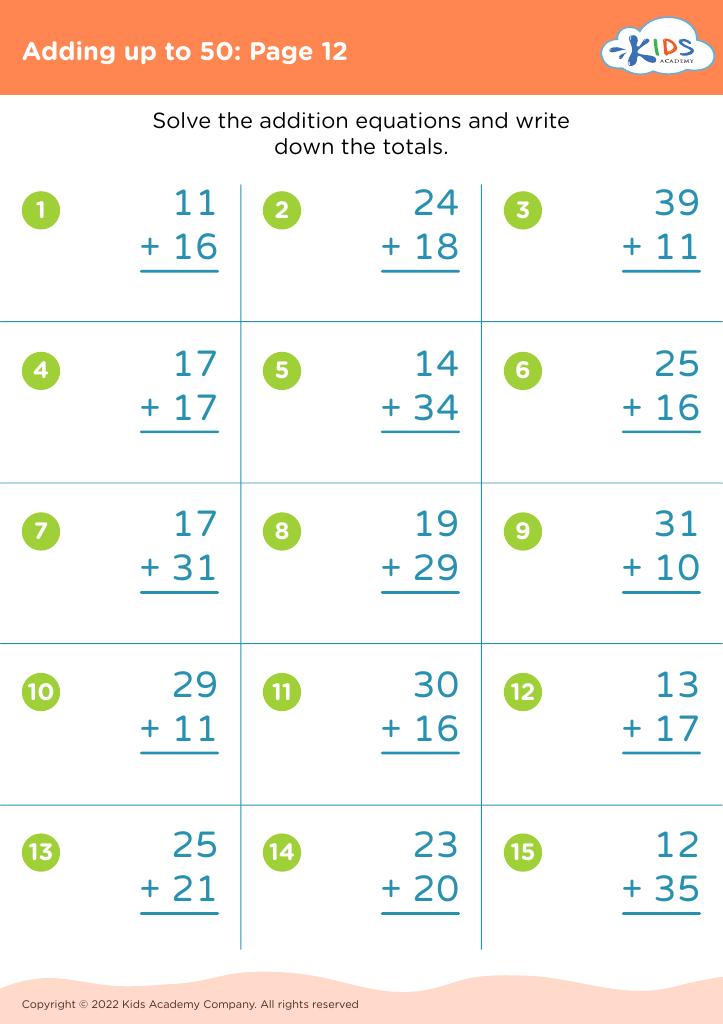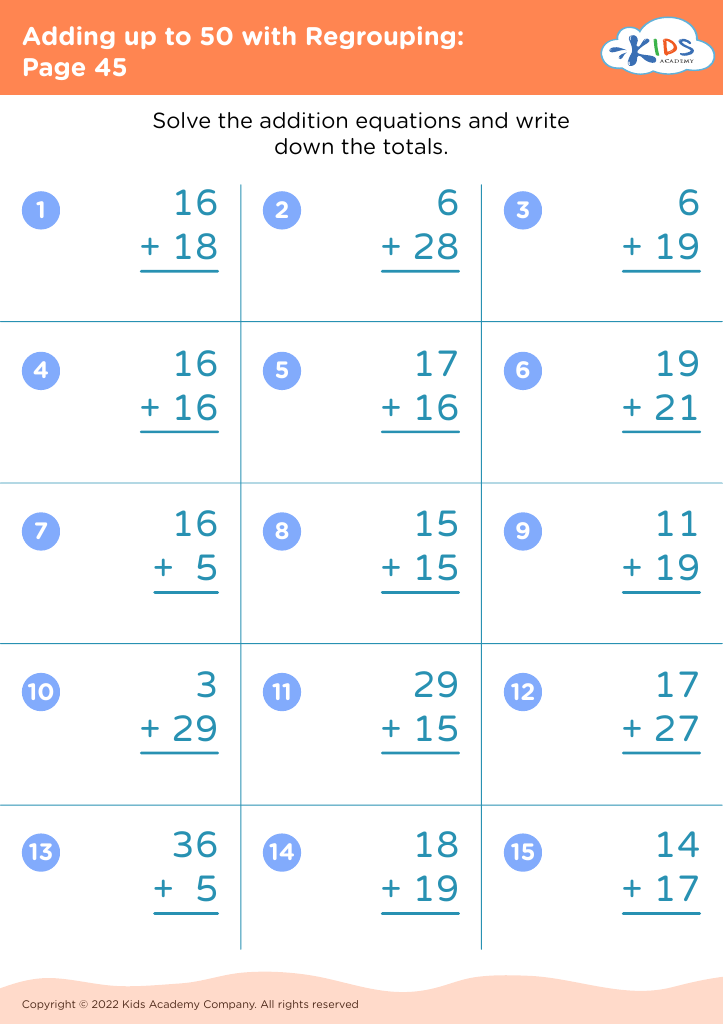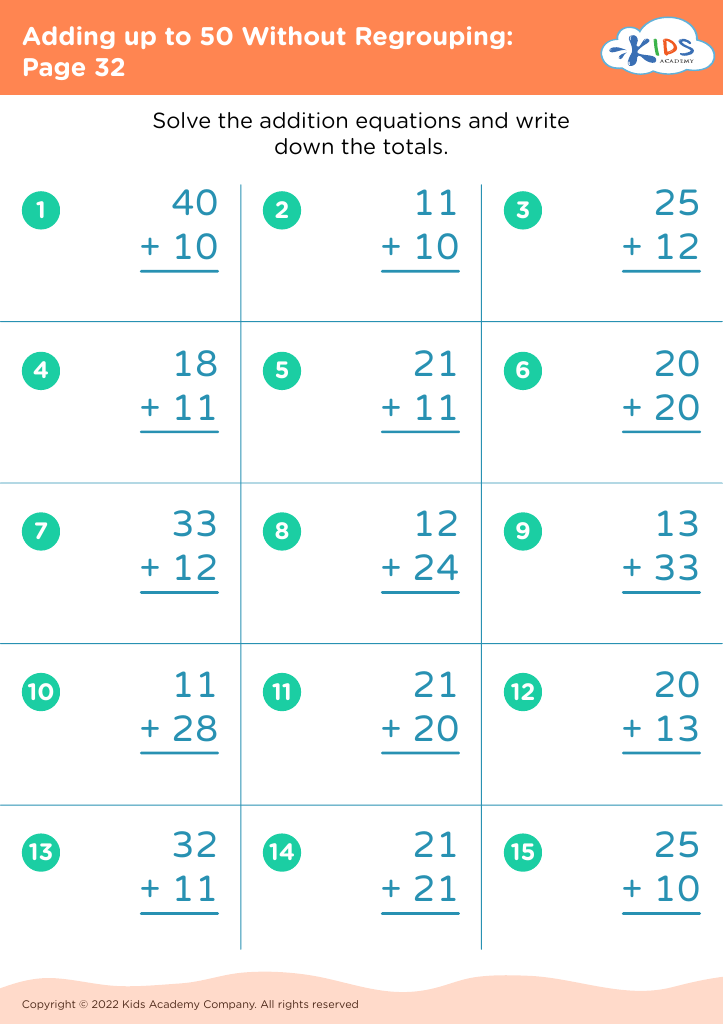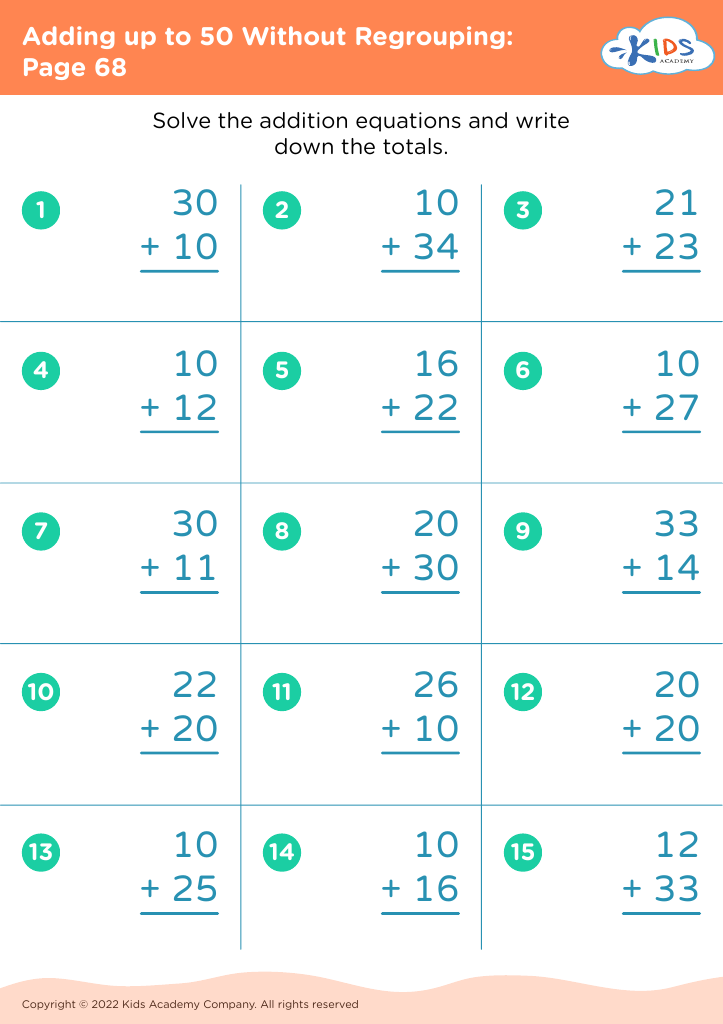Basic Addition Skills Adding up to 50 Worksheets for Ages 7-9
5 filtered results
-
From - To
Enhance your child's math proficiency with our engaging Basic Addition Skills Worksheets designed specifically for ages 7-9. These worksheets focus on addition problems that total up to 50, ensuring young learners build a solid foundation in arithmetic. Each worksheet features a variety of fun exercises, including word problems and visual aids, making math enjoyable and interactive. Suitable for both classroom and home practice, these resources aim to boost confidence and improve computational skills. Perfect for reinforcing classroom learning or for use during homeschooling, our worksheets provide targeted practice to help your child master basic addition with ease. Start learning today!
Basic addition skills, particularly adding numbers up to 50, are foundational for children aged 7-9, and it's crucial for both parents and teachers to prioritize this. At this age, children are transitioning from simple arithmetic to more complex math concepts, which will be essential in their academic journey. Mastering basic addition fosters confidence and fluency, making future math learning smoother and more enjoyable.
Moreover, comprehension of addition helps children develop critical thinking and problem-solving abilities. These skills don’t just apply to math; they are beneficial across subjects and real-life situations. For instance, kids will use addition when managing allowances, planning events, or even simple cooking.
Additionally, having a solid grasp of addition lays the groundwork for understanding important concepts such as multiplication and division, as these rely heavily on addition. This ensures that when they encounter more advanced mathematics later, they are equipped with the necessary skills for success.
Furthermore, early intervention in mastering addition can prevent struggles in later grades, where math becomes increasingly complex. Therefore, nurturing these skills now shapes a positive attitude towards math and enhances overall academic performance. Engaging with basic addition education can significantly impact a child’s learning trajectory and self-esteem in a classroom setting.

















